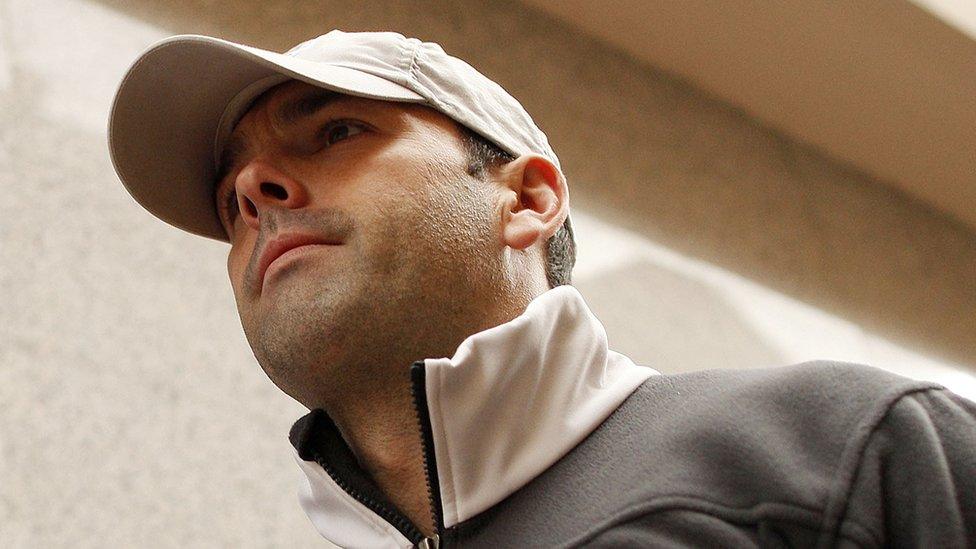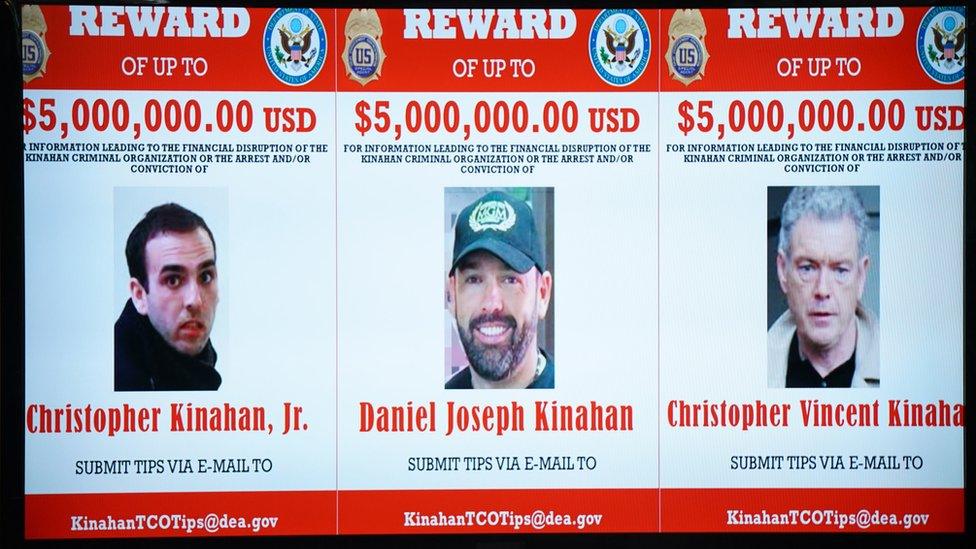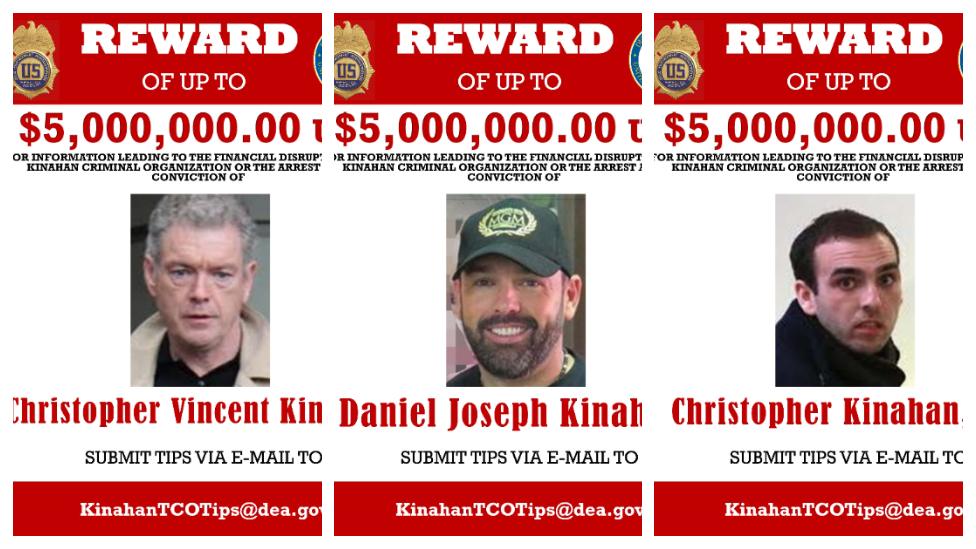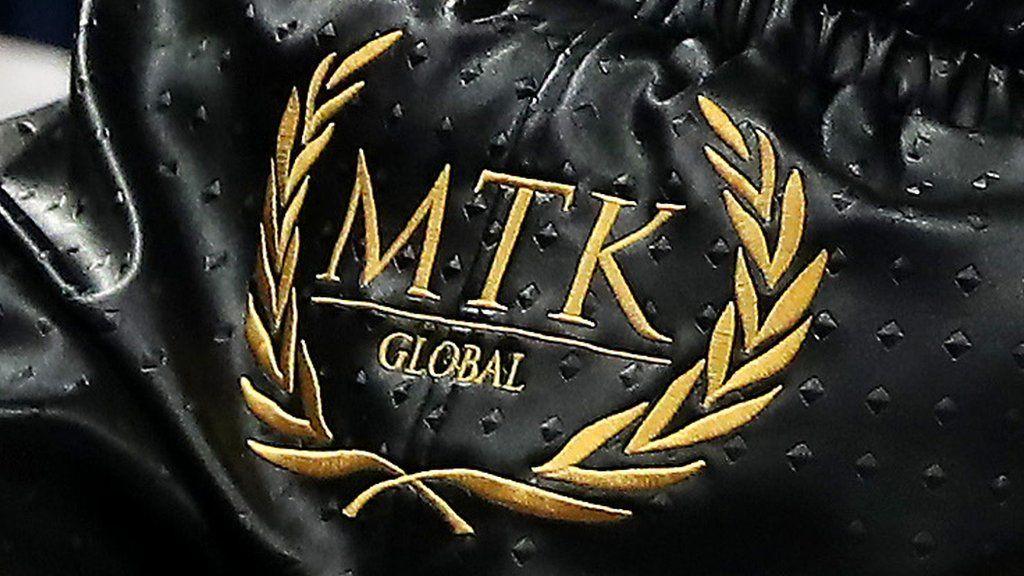MTK Global: Boxers exploited by Kinahan gang, officer says
- Published

Daniel Kinahan co-founded MTK Boxing which had links with many top boxers
Many boxers have been exploited and preyed upon by the Kinahan organised crime group, a senior officer has said.
The US recently imposed sanctions on the gang's leaders and banned hundreds of people with suspected connections to the cartel from entering the country.
A number of prominent boxers from Northern Ireland were formerly associated with the MTK boxing management company, which was co-founded by Daniel Kinahan.
The boxers had no involvement in crime.
Speaking to BBC News NI, Assistant Garda Commissioner John O'Driscoll said the United States shares information with the Irish authorities about some people who are banned from entering the US.
"That is a matter for the US authorities and we would not necessarily know all of the people who are refused entry in such circumstances. But, where it would be relevant to us, and where it may assist us in our investigations, that information is shared by the US authorities," he explained.
Shortly after the US sanctions and reward were announced, MTK announced that it was closing down.
For years, the company was involved with some of the best boxers in the world, including some high profile boxers from Northern Ireland - Carl Frampton, Paddy Barnes and Michael Conlon.
Carl Frampton and Paddy Barnes had retired, and Michael Conlon had disassociated himself from MTK, before it ceased operations.
These boxers had no involvement with crime.

In April, US authorities said a $5m reward was being offered for information leading to the arrest and conviction of the gang's leaders
BBC News NI asked Assistant Commissioner O'Driscoll if any boxers - who were associated with MTK in the past - could be among the 600 people who've been banned from entering the US.
He responded: "It is a matter for interaction between a particular individual and the US authorities as they attempt to enter the US. But, from my knowledge, if they can assure the US authorities that they have disassociated themselves from people or entities that are problematic, that the prospect is there that they will be allowed entry to the US into the future."
'Preyed upon'
The senior officer, who has been to the forefront of the international efforts to bring down the Kinahan cartel, believes the gang took advantage of many boxers from Northern Ireland and elsewhere.
"We see many people who are involved in boxing, in particular young people, being exploited by that organised crime group," he outlined.
"These are people who have, maybe, dedicated their life to pursuing a career in boxing, and who have no knowledge of the activities of the Kinahan organised crime group, but have been preyed upon by them and find themselves in circumstances that were not of their own making and they are people that we are attempting to protect also, in targeting the criminal activity engaged in by the Kinahan organised crime group."
Commenting on the continuing international efforts against the gang leaders and their assets, the Dublin-based assistant commissioner said there was an important cross-border dimension to the operation.
"Northern Ireland features from a number of perspectives. Firstly, it may feature in the drug trafficking route involved. So, while cocaine obviously, imported into Ireland by the Kinahan organised crime group, will in some cases be destined for Ireland, on other occasions it'll be destined for the UK, and the route which it will take may include transportation through Northern Ireland," he explained.
"Or indeed, it may in some cases be intended to supply a demand for that drug in that part of the UK also."
He added: "Movement takes place on a regular basis among those who are involved in the criminal organisations concerned.
"So, you may find movement that is temporary in nature. On occasions, people may stay somewhat longer. But, all of those movements are subject to ongoing monitoring in the relevant jurisdictions."
- Published12 April 2022

- Attribution
- Published20 April 2022
